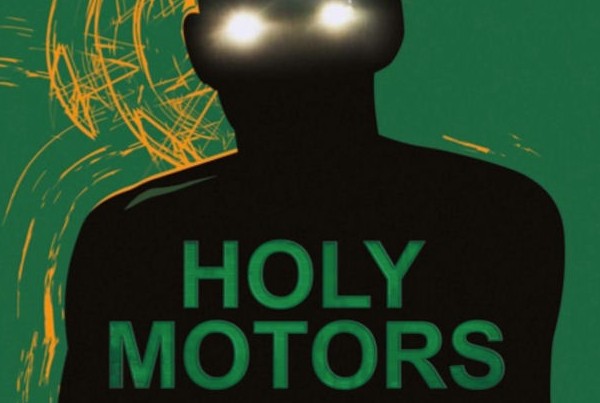Holy Motors (2012)

“Holy Motors,” released in 2012, is a surrealist fantasy drama directed and written by Leos Carax. Known for its innovative storytelling and striking visual style, the film has garnered critical acclaim for its exploration of identity, performance, and the nature of cinema itself. Starring Denis Lavant in a remarkable lead role, alongside Édith Scob and a host of other talented actors, “Holy Motors” takes viewers on an enigmatic journey through the life of a man who embodies multiple personas over the course of a single day.
The narrative follows Monsieur Oscar (Denis Lavant), a mysterious figure who travels around Paris in a luxurious limousine. As he transitions between various roles, from a family man to a beggar, to a death metal musician, and even a monster, the film unfolds as a series of vignettes that blur the lines between reality and performance. Each role Oscar assumes serves as a reflection of the human experience, addressing themes of love, death, and the fluidity of identity.
The film opens with a dreamlike sequence, setting the tone for the surreal journey that lies ahead. Carax utilizes an unconventional narrative structure, eschewing traditional storytelling methods in favor of a more abstract approach. This allows viewers to engage with the film on a deeper level, interpreting its meaning through personal lenses. The surreal nature of the film is emphasized by its striking visual imagery and eclectic soundtrack, creating a sensory experience that captivates and confounds.
One of the most notable aspects of “Holy Motors” is Lavant’s extraordinary performance. His ability to embody diverse characters with such authenticity and emotional depth is nothing short of remarkable. Each transformation is accompanied by a physicality that adds layers to the narrative, allowing the audience to witness the psychological and emotional toll of assuming multiple identities. Lavant’s commitment to his roles highlights the film’s exploration of the nature of acting and the ways in which people present themselves to the world.
Édith Scob also delivers a compelling performance as Céline, Oscar’s enigmatic assistant. Her character adds an intriguing dimension to the story, serving as a constant presence throughout Oscar’s transformations. Scob’s portrayal brings a sense of mystery and depth, enhancing the film’s exploration of companionship and the nature of human connection.
The film’s visuals are a standout feature, with Carax employing a mix of striking cinematography and inventive production design. Each vignette is meticulously crafted, showcasing the beauty of Paris while simultaneously creating a sense of the uncanny. The juxtaposition of vibrant cityscapes with Oscar’s bizarre transformations underscores the film’s themes of alienation and the search for meaning in a chaotic world.

Thematically, “Holy Motors” raises profound questions about existence and the nature of reality. It challenges viewers to consider what it means to inhabit different roles and how these personas shape our identities. Through Oscar’s journey, the film delves into the idea of performance as a fundamental aspect of human life, suggesting that we all wear masks in our daily interactions.

Moreover, “Holy Motors” can be interpreted as a commentary on the film industry and the art of storytelling. The film’s structure mirrors the process of filmmaking itself, highlighting the collaborative nature of cinema. It also reflects on the relationship between the actor and the audience, questioning the boundaries of authenticity in performance. The final scenes of the film provoke thought about the purpose of art and the impact of cinema on our understanding of reality.

In conclusion, “Holy Motors” is a groundbreaking work of art that defies categorization. Leos Carax’s visionary direction, combined with Denis Lavant’s stunning performance, creates a film that is both challenging and rewarding. Its exploration of identity, performance, and the nature of cinema invites viewers to reflect on their own experiences and the roles they play in life. For those willing to embrace its surreal narrative and artistic ambition, “Holy Motors” offers a unique and unforgettable cinematic experience that lingers long after the credits roll.











